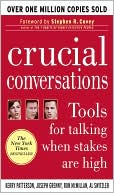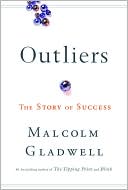Essential Drucker: The Best of Sixty Years of Peter Drucker's Essential Writings on Management (Collins Business Essentials Series)
Father of modern management, social commentator, and preeminent business philosopher, Peter F. Drucker analyzed economics and society for more than sixty years. Now for readers everywhere who are concerned with the ways that management practices and principles affect the performance of organizations, individuals, and society, there is The Essential Drucker—an invaluable compilation of essential materials from the works of a management legend.\ Containing twenty-six core selections, The...
Search in google:
'In one volume a selection of the essential writings from Peter F. Drucker's sixty years of work on management. The first selection of Drucker's management work from The Prctice of Management (1954) to Management Challenges for the 21st Century (1999), this book offers, in Drucker's words, "a coherent and fairly comprehensive Introduction to [and] gives an overview of my works on management and thus answers a question I have been asked again and again: . . . which of my writings are essential?" The Essential Drucker contains twenty-six selections on management in the organization, management and the individual, and management and society. It covers the basic principles and concerns of management and its problems, challenges, and opportunities, giving managers, executives, and professionals the tools to perform the tasks that the economy and society of ,==otherwise ungrammatical== tomorrow will demand of them.
The Essential Drucker\ The Best of Sixty Years of Peter Drucker's Essential Writings on Management \ Chapter One\ Management as Social Function and Liberal Art\ When Karl Marx was beginning work on Das Kapital in the 185Os, the phenomenon of management was unknown. So were the enterprises that managers run. The largest manufacturing company around was a Manchester cotton mill employing fewer than three hundred people and owned by Marx's friend and collaborator Friedrich Engels. And in Engels's mill—one of the most profitable businesses of its day—there were no "managers," only "charge hands" who, themselves workers, enforced discipline over a handful of fellow "proletarians."\ Rarely in human history has any institution emerged as quickly as management or had as great an impact so fast. In less than 150 years, management has transformed the social and economic fabric of the world's developed countries. It has created a global economy and set new rules for countries that would participate in that economy as equals. And it has itself been transformed. Few executives are aware of the tremendous impact management has had. Indeed, a good many are like M. Jourdain, the character in Molière's Bourgeois Gentilhomme, who did not know that he spoke prose. They barely realize that they practice—or mispractice—management. As a result, they are ill prepared for the tremendous challenges that now confront them. The truly important problems managers face do not come from technology or politics; they do not originate outside of management and enterprise. They are problems caused by the very success of managementitself.\ To be sure, the fundamental task of management remains the same: to make people capable of joint performance through common goals, common values, the right structure, and the training and development they need to perform and to respond to change. But the very meaning of this task has changed, if only because the performance of management has converted the workforce from one composed largely of unskilled laborers to one of highly educated knowledge workers.\ The Origins and Development of Management\ On the threshold of World War I, a few thinkers were just becoming aware of management's existence. But few people even in the most advanced countries had anything to do with it. Now the largest single group in the labor force, more than one-third of the total, are people whom the U.S. Bureau of the Census calls "managerial and professional." Management has been the main agent of this transformation. Management explains why, for the first time in human history, we can employ large numbers of knowledgeable, skilled people in productive work. No earlier society could do this. Indeed, no earlier society could support more than a handful of such people. Until quite recently, no one knew how to put people with different skills and knowledge together to achieve common goals.\ Eighteenth-century China was the envy of contemporary Western intellectuals because it supplied more jobs for educated people than all of Europe did—some twenty thousand per year. Today, the United States, with about the same population China then had, graduates nearly a million college students a year, few of whom have the slightest difficulty finding well-paid employment. Management enables us to employ them.\ Knowledge, especially advanced knowledge, is always specialized. By itself it produces nothing. Yet a modern business, and not only the largest ones, may employ up to ten thousand highly knowledgeable people who represent up to sixty different knowledge areas. Engineers of all sorts, designers, marketing experts, economists, statisticians, psychologists, planners, accountants, human-resources people-all working together in a joint venture. None would be effective without the managed enterprise.\ There is no point in asking which came first, the educational explosion of the last one hundred years or the management that put this knowledge to productive use. Modern management and modern enterprise could not exist without the knowledge base that developed societies have built. But equally, it is management, and management alone, that makes effective all this knowledge and these knowledgeable people. The emergence of management has converted knowledge from social ornament and luxury into the true capital of any economy.\ Not many business leaders could have predicted this development back in 1870, when large enterprises were first beginning to take shape. The reason was not so much lack of foresight as lack of precedent. At that time, the only large permanent organization around was the army. Not surprisingly, therefore, its commandand-control structure became the model for the men who were putting together transcontinental railroads, steel mills, modern banks, and department stores. The command model, with a very few at the top giving orders and a great many at the bottom obeying them, remained the norm for nearly one hundred years. But it was never as static as its longevity might suggest. On the contrary, it began to change almost at once, as specialized knowledge of all sorts poured into enterprise.\ The first university-trained engineer in manufacturing industry was hired by Siemens in Germany in 1867—his name was Friedrich von Hefner-Alteneck. Within five years he had built a research department. Other specialized departments followed suit. By World War I the standard functions of a manufacturer had been developed: research and engineering, manufacturing, sales, finance and accounting, and a little later, human resources (or personnel).\ Even more important for its impact on enterprise—and on the world economy in general—was another management-directed development that took place at this time. That was the application of management to manual work in the form of training. The child of wartime necessity, training has propelled the transformation of the world economy in the last forty years because it allows low-wage countries to do something that traditional economic theory had said could never be done: to become efficient—and yet still low-wage—competitors almost overnight.\ Adam Smith reported that it took several hundred years for a country or region to develop a tradition of labor and the expertise in manual and managerial skills needed to produce and market a given product, whether cotton textiles or violins...\ The Essential Drucker\ The Best of Sixty Years of Peter Drucker's Essential Writings on Management. Copyright © by Peter Drucker. Reprinted by permission of HarperCollins Publishers, Inc. All rights reserved. Available now wherever books are sold.
Introduction: The Origin and Purpose of The Essential Drucker viiManagementManagement as Social Function and Liberal Art 3The Dimensions of Management 14The Purpose and Objectives of a Business 18What the Nonprofits Are Teaching Business 39Social Impacts and Social Problems 51Management's New Paradigms 69The Information Executives Need Today 95Management by Objectives and Self-Control 112Picking People-The Basic Rules 127The Entrepreneurial Business 136The New Venture 144Entrepreneurial Strategies 161The IndividualEffectiveness Must Be Learned 191Focus on Contribution 207Know Your Strengths and Values 217Know Your Time 225Effective Decisions 241Functioning Communications 261Leadership as Work 268Principles of Innovation 272The Second Half of Your Life 280The Educated Person 287SocietyA Century of Social Transformation-Emergence of Knowledge Society 299The Coming of Entrepreneurial Society 321Citizenship through the Social Sector 329From Analysis to Perception-The New Worldview 337Afterword: The Challenge Ahead 347Index 350
\ From Barnes & Noble"Not to know how to manage," writes Peter Drucker, "is the single largest reason for the failure of new ventures." Anyone who feels a need to learn more about the practice and discipline of management would do well to consult this book, a collection of eloquent and insightful essays that spans the 60-year length of Drucker's career. One of the pleasures of this volume is Drucker's continual emphasis on enduring principles (the importance of structure, the need to develop disagreement) and values (employers must lead rather than manage, focus should remain on the work instead of the personalities that organize it.) One of Drucker's seemingly radical statements -- "The manager is a servant" -- nicely encapsulates much of his philosophy: The institution being managed, the work that needs to be done, the creation of an effective organization -- these are the true masters in any corporate environment.\ \








